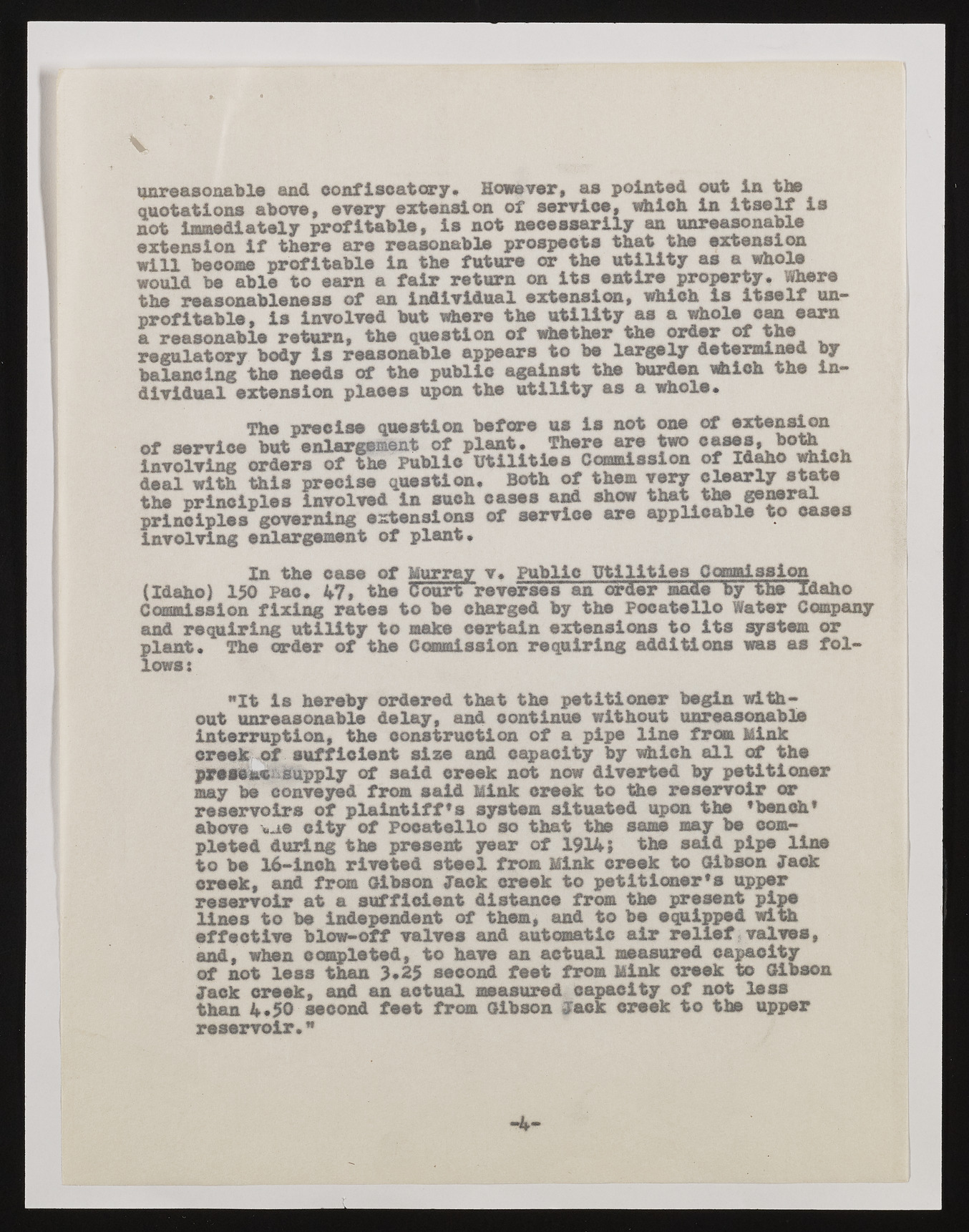Copyright & Fair-use Agreement
UNLV Special Collections provides copies of materials to facilitate private study, scholarship, or research. Material not in the public domain may be used according to fair use of copyrighted materials as defined by copyright law. Please cite us.
Please note that UNLV may not own the copyright to these materials and cannot provide permission to publish or distribute materials when UNLV is not the copyright holder. The user is solely responsible for determining the copyright status of materials and obtaining permission to use material from the copyright holder and for determining whether any permissions relating to any other rights are necessary for the intended use, and for obtaining all required permissions beyond that allowed by fair use.
Read more about our reproduction and use policy.
I agree.Information
Digital ID
Permalink
Details
More Info
Rights
Digital Provenance
Publisher
Transcription
V unreasonable and confiscatory. However, as pointed out in the quotations above, every extension of service, which in itself is not immediately profitable, is not necessarily an unreasonable extension if there are reasonable prospects that the extension will become profitable in the future or the utility as a whole would be able to earn a fair return on its entire property. Where the reasonableness of an individual extension, which is Itself unprofitable, is involved but where the utility as a whole can earn a reasonable return, the question of whether the order of the regulatory body is reasonable appears to be largely determined by ng the needs of the public against the burden which the individual extension places upon the utility as a whole. The precise question before us is not one of extension of serviee but enlargement of plant. There are two eases, both involving orders of the Public Utilities Commission of Idaho which deal with this precise question. Both of them very clearly state the principles involved in such cases and show that^ the_general^^ principles governing extensions of service are applicable to eases Involving enlargement of plant. In the case of Murray v« Public Utilities Commission (Idaho) 150 Pac. 47, the iToufi "reverses an order made by the Idaho Commission fixing rates to be charged by the Pocatello Water Company and requiring utility to make certain extensions to its system or plant. The order of the Commission requiring additions was as follows: "It is hereby ordered that the petitioner begin without unreasonable delay, and continue without unreasonable interruption, the construction of a pipe line from Mink creek of sufficient size and eapaelty by which all of the press** supply of said ereek not now diverted by petitioner may be conveyed from said Mink creek to the reservoir or reservoirs of plaintiff's system situated upon the 'bench' above «ae city of Pocatello so that the same may be completed during the present year of 1914» the said pipe line to be 16-inch riveted steel from Mink creek to Gibson Jack ereek, and from Gibson Jack creek to petitioner's upper reservoir at a sufficient distance from the present pipe lines to be independent of them, and to be equipped with effective blow-off valves and automatic air relief valves, and, when completed, to have an actual measured capacity of not less than >*25 second feet from Mink creek to Gibson Jack creek, and an actual measured capacity of not less than 4.50 second feet from Gibson Jack ereek to the upper reservoir." -4-

